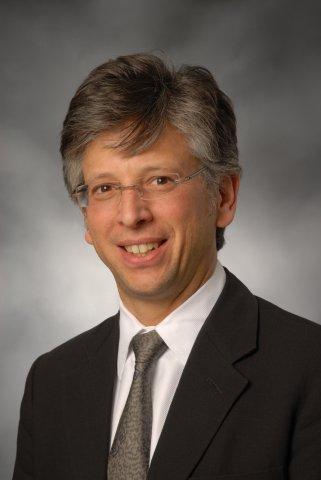FOR IMMEDIATE RELEASE | September 03, 2013
ACS Nano editor-in-chief featured in article in MIT Technology Review
WASHINGTON, Sept. 3, 2013 — Paul Weiss, Ph.D., editor of the American Chemical Society’s (ACS’) scientific journal ACS Nano, is featured in a profile in the September/October edition of MIT Technology Review. Founded in 1899 at the Massachusetts Institute of Technology (MIT), the magazine reports on important technologies and innovators. Weiss received a master’s degree in chemistry from MIT in 1980.
The article describes how Weiss, now professor of chemistry at the University of California, Los Angeles, and head of the California NanoSystems Institute, is bringing together nanoscientists and neuroscientists to develop new tools for understanding the brain. Weiss’ efforts, the article points out, are bearing fruit.
In April, President Obama requested $100 million in federal funding for the Brain Research through Advancing Innovative Neurotechnologies (BRAIN) Initiative. Private research institutions are also chipping in. The Kavli Foundation, a nonprofit in Oxnard, Calif., has pledged $40 million over the next 10 years. “His profound understanding of the whole field of nanotechnology made a huge difference,” the Kavli Foundation’s Vice President of Science Programs Miyoung Chun, Ph.D., says of Weiss in the article. Chun helped coordinate the project that became the BRAIN Initiative.
Brian Crawford, Ph.D., president of ACS Publications, cited Weiss’ accomplishments in advancing nanoscience through ACS Nano, which ACS launched in 2007, and is among more than 40 peer-reviewed scientific journals published by the world’s largest scientific society.
“Under Paul Weiss’ leadership, with an extraordinary team of editors and a thriving community of authors, reviewers, advisors and readers, ACS Nano is defining nanoscience and nanotechnology,” said Crawford. “By working beyond traditional disciplinary boundaries, the journal is earning the attention of scientists, engineers, clinicians and the public.”
Crawford pointed out that ACS Nano’s “impact factor,” a key measure of a publication’s influence in the scientific community reported annually by Journal Citation Reports® from Thomson Reuters, reached a new record in 2012, rising above 12 for the first time. The impact factor is based on the number of times scientists cited ACS Nano articles in their research papers. That number totaled 38,585 in 2012, an increase of 70 percent from 2011.
To automatically receive news releases from the American Chemical Society, contact newsroom@acs.org.
###
The American Chemical Society is a nonprofit organization chartered by the U.S. Congress. With more than 163,000 members, ACS is the world's largest scientific society and a global leader in providing access to chemistry-related research through its multiple databases, peer-reviewed journals and scientific conferences. Its main offices are in Washington, D.C., and Columbus, Ohio.
Media Contact
Michael Bernstein
m_bernstein@acs.org
202-872-6042
Michael Woods
m_woods@acs.org
202-872-6293






